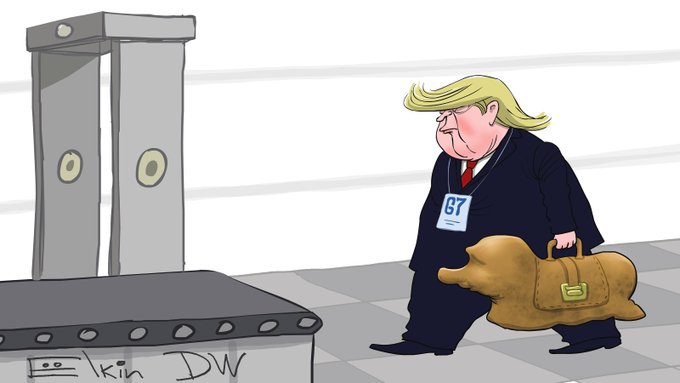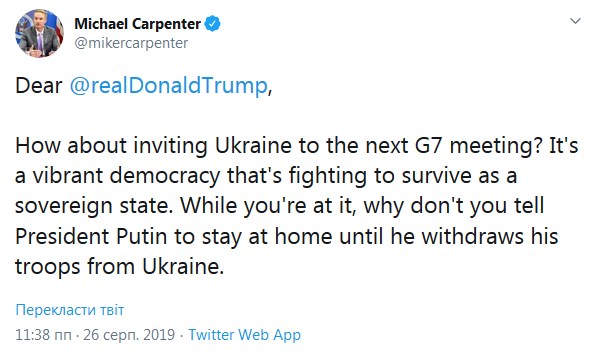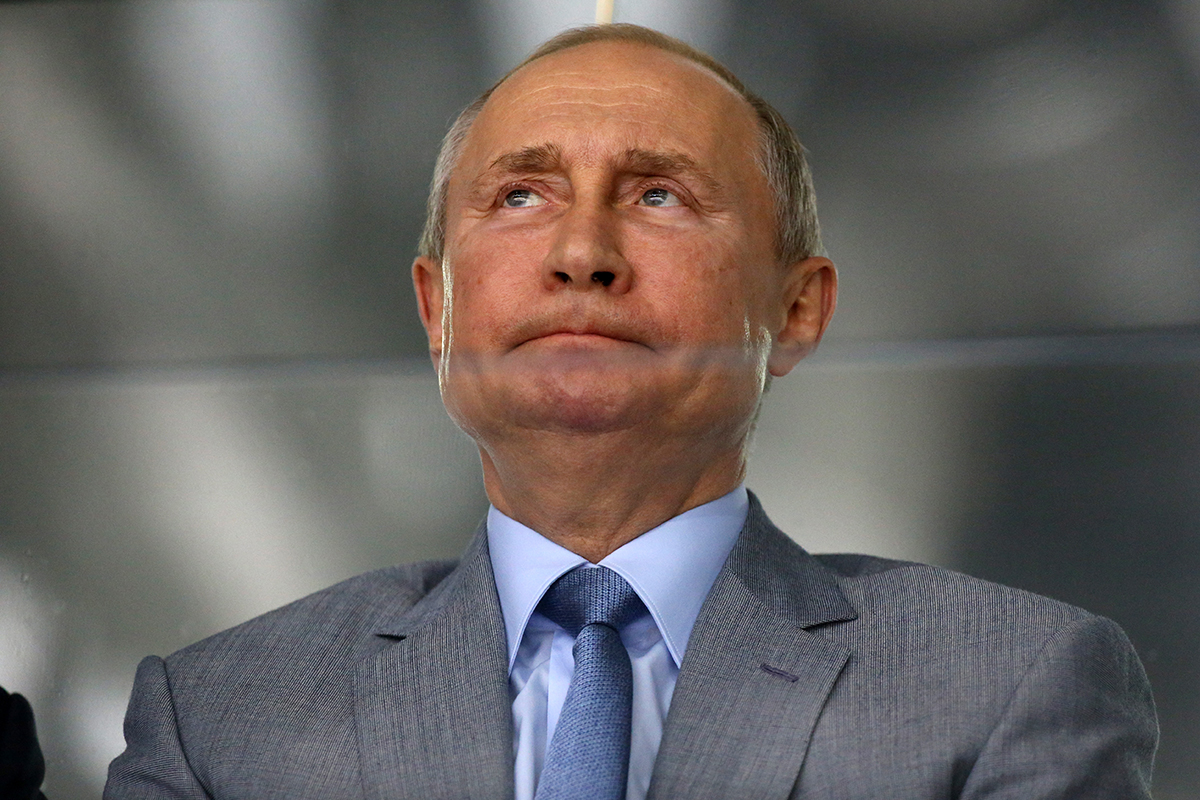The Biarritz G7 summit has come to its end. While many feared Russia’s potential historic return, the world leaders did not support Donald Trump’s initiative to let Putin rejoin the group. The US president, however, has still managed to hint about Russia’s potential invitation to the next meeting held by the United States.
"Apostrophe" reports on the summit’s results and the G7 leaders’ quarrels over Russia.
Who is who
The US President Donald Trump has been the main lobbyist for Russia's return to G7. As western media reported, he even started a quarrel with other leaders, insisting on Russia’s urgent comeback. Trump’s idea, however, was met with a noticeable lack of enthusiasm. Italian Prime Minister Giuseppe Conte was the only one to support the American president, while Japanese Prime Minister Shinzo Abe noted that his country prefers to remain neutral.
At the same time, British Prime Minister Boris Johnson, German Chancellor Angela Merkel, Canadian Prime Minister Justin Trudeau, French President Emmanuel Macron and European Council President Donald Tusk all refused to support Trump’s idea. Interestingly, during his meeting with Vladimir Putin less than a week ago, Macron did not stand against Russia’s return. Quite the opposite, actually.
...keep enemies closer. What did Trump say?
The G7’s decision has clearly left Donald Trump disappointed. It is quite interesting, however, that a man actively building a wall to separate the US from everyone else believes that "it is better to have Russia inside the tent than outside the tent.” Perhaps, this is a new version of the good old saying “keep your friends close and enemies closer.”

President Trump is confident that Russia's return could help resolve many issues. Answering a journalist’s question on whether Moscow could ask to rejoin the G7, Trump stated that Putin would not ask for re-admittance, as he is "a very proud guy".
At the same time, Trump expressed his intentions to invite Putin to the next G7 summit, which is supposed to take place in 2020 in the United States. The Kremlin, however, would be invited as a guest rather than a participant.
Others’ reaction
French President Emmanuel Macron was surprisingly inconsistent, conveying that Russia’s return without a solution to the Ukrainian issue would be perceived as a weakness of the West. Macron added that, together with Angela Merkel, he is preparing talks in the Normandy format. The meeting with both Putin and Ukraine’s President Volodymyr Zelensky may take place as soon as early September.
Macron remarked that while there is no consensus on Russia, Trump – as a host – has the right to invite Putin. Macron did something similar himself, inviting the Iranian delegation without notifying other leaders.
Canada’s Justin Trudeau has also spoken out sharply against the return of Russia.
"We have made it clear that Canada does not support Russia's return to the G7," he said.
The Canadian Prime Minister added that Russia still needs to change its behavior, which served as a reason for the country’s suspension in 2014. Trudeau emphasized that Canada remains a staunch defender of Ukraine's sovereignty.
Angela Merkel, in turn, stated that the situation in Ukraine is the main obstacle to Russia's comeback.
"On behalf of Germany, I made it clear that we need progress in the implementation of the Minsk processes," the Chancellor said.
Before the summit, Boris Johnson expressed the UK’s firm position.
"Given what happened in Salisbury in Wiltshire, given the use of chemical weapons on British soil, given the continuing instability, civil war, the war in Ukraine, given Russia's provocations, not just in Ukraine but many other places, I must say I am very much with Chancellor Merkel in thinking that the case has yet to be made out for Russia to return to the G7, "Johnson affirmed.
Trump’s idea did not prove to be popular in the United States either. For instance, former Deputy Assistant Secretary of Defense Michael Carpenter reminded Donald Trump of Ukraine, which is the main victim of Kremlin's aggression. “How about inviting Ukraine to the next G7 meeting? It's a vibrant democracy that's fighting to survive as a sovereign state. While you're at it, why don't you tell President Putin to stay at home until he withdraws his troops from Ukraine,” he wrote.

Russia itself believes it would be wrong to return to the G7 at the invitation of one country.
"For Russia, a membership or return to the G7 is not an end in itself," Putin's speaker Dmitry Peskov said.
What was decided at the G7 summit
In fact, the G7 summit has ended in nothing. It is one of the rare times that no document has been signed. There was only a one-page statement written by the President of France.
In addition to the upcoming negotiations on Ukraine, the document mentions Iran, Libya and Hong Kong, as well as the situation with the WTO.
In particular, the G7 calls for WTO reforms to strengthen intellectual property protection and to quickly overcome unfair trade practices.
G7 leaders believe that Iran should not receive nuclear weapons, maintaining regional stability.
As for Libya, the G7 called for a long ceasefire and peace talks.
Concerning Hong Kong protests, the G7 reaffirmed the existence and importance of the Sino-British joint declaration of 1984 on Hong Kong and called for the avoidance of violence.
It is also known that the G7 countries refused to make a decision on the allocation of funds to fight fires in the Amazon.
What is Ukraine’s position on the invitation of Russia?
"The return of the occupied Crimea, the cessation of hostilities in the Donbas and the release of more than 100 political prisoners and Ukrainian sailors held by the Kremlin will be a real serious signal to the world that Russia is ready to take its place again on the agenda of high diplomacy," Zelensky wrote.
"The whole invitation thing reminded me of a famous movie in the early' 80s, "I know you know I know". The President of the United States was well aware that no decision would be made. After all, decisions are made unanimously in this club. In turn, Putin also knew that Russia's return to the club would not happen under any circumstances," Deputy Minister for the Occupied Territories Heorhii Tuka wrote in Facebook.


